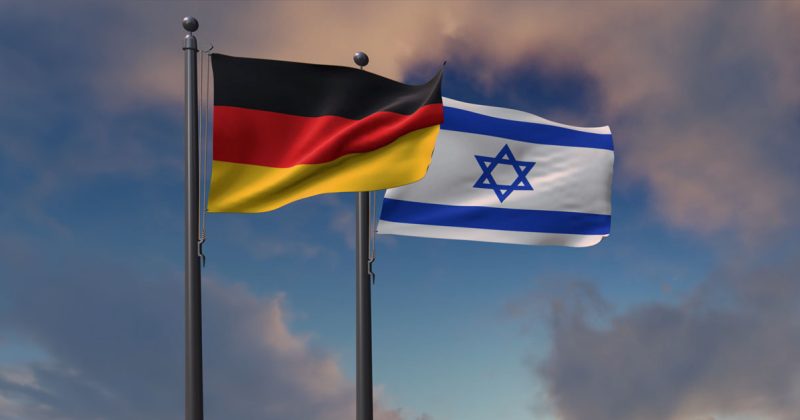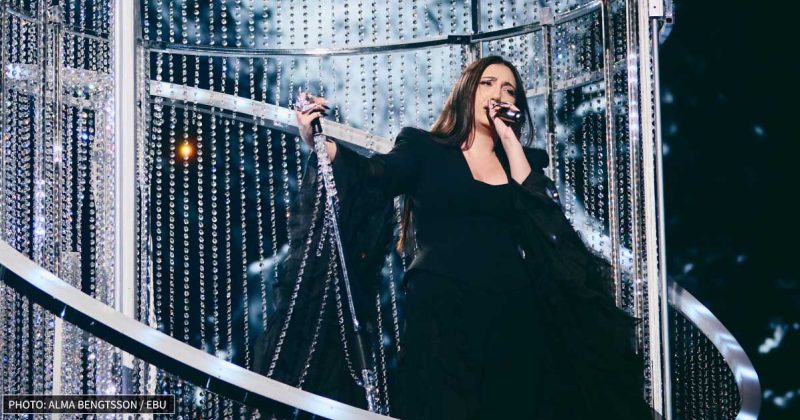
Nordic broadcasters meet in Reykjavik with EBU to debate Israel’s Eurovision 2026 status amid political tensions and conflicting positions
Stefán Jón Hafstein, Chairman of the Broadcasting Council of Iceland’s national broadcaster, broke his silence by calling for Israel’s immediate exclusion from Eurovision. His opinion piece in Icelandic news outlet Vísir sparked heated debate in Iceland and across Nordic countries, echoing in Israel as well.
Hafstein revealed that Nordic national broadcaster directors will soon convene in Reykjavik, Iceland’s capital, for a closed, high-profile meeting attended by an EBU representative. The envoy is tasked with gauging Nordic sentiment, but many delegations appear to have already reached firm positions.
Six Reasons Behind the Demand

In his article, Hafstein outlined six decisive arguments for expulsion, led by the UN Special Inquiry Committee’s report alleging Israel’s commission of genocide in Gaza. “It has long been evident to all that Israel’s government violates international law, commits crimes against humanity, uses starvation as a weapon of war, and plans massacres that have killed tens of thousands of civilians,” he wrote.
His next point: more than 200 international organizations, including the Red Cross, Amnesty International, and UN bodies, have condemned Israel’s policies. In Iceland itself, hundreds of unions united under the protest banner “Nation Against Genocide”, staging large demonstrations and calling for commercial and cultural boycotts – including against the public broadcaster. He also cited the Nordic Eurovision Fan Club’s support for such measures.
Double Standards: “Why Was Russia Expelled but Not Israel?”
Hafstein compared the situation to Russia’s expulsion after its invasion of Ukraine: “The EBU determined that Russia caused a crisis and damaged the contest’s reputation – exactly what Israel’s government has done”. He accused the EBU of selective enforcement. “It’s a polite way of describing the nonsense used to justify Israel’s participation but not Russia’s”. He added that the suffering in Gaza is no less severe than in Ukraine, and in both cases leaders are “partners in crime”.
Serious Allegations: Propaganda, Vote Manipulation, and Censorship

In his continued remarks, Hafstein accused Israel’s government of exploiting Eurovision for propaganda, investing heavily to sway voting outcomes. He claimed the contest’s organizers even manipulated the sound during live broadcasts to silence protests in real time. For him, there is nothing “apolitical” about a country committing genocide while seeking legitimacy through music.
He stressed that Israel’s actions contradict the EBU’s founding principles, including free communication and public service. According to Hafstein, Israel blocked journalistic access – including for union members – and censored reports from Gaza. The organized killings of journalists are, in his view, another red line.
Nordic Unity? Calls for Action Amid Divisions
Near the end of his article, Hafstein asserted that the hope for peace must be backed by deeds, not words. He urged Nordic nations to stand together and declare “Enough”. He cited Finland’s president, who addressed the UN General Assembly calling to cease cooperation with Benjamin Netanyahu, Israel’s Prime Minister, and to defend humanitarian values and international cooperation.
At the forthcoming closed session in Iceland, Nordic national broadcaster directors will discuss the matter with EBU presence. While Hafstein is seeking a united front for boycotting Israel, several countries arrive with established positions.

Two weeks ago, Anne Lagercrantz, CEO of Sweden’s SVT, stated that SVT is independent and takes no stance for or against any country’s participation, including Israel. “We are here for the music and culture”, she hinted. Lagercrantz added that unlike the case with Russia in 2022, whose public broadcasters were deemed part of governmental propaganda machinery, Israel’s broadcasters are independent and not state-controlled – insinuating opposition to Israel’s removal from the contest.
In Denmark, Gustav Lützhøft, a senior editor at DR, clarified: “We will not vote to expel any EBU member from the contest as long as they comply with rules and regulations. Denmark’s participation in Eurovision depends on a strong international community and a non-political framework around the contest – so we will not vote to eject Israel”.
Early in September, Norway announced it would not boycott the contest even if Israel participates – a surprise to many fans, as the country is often perceived by Israelis as hostile toward Israel’s Eurovision presence.
Finland remains the only Nordic nation that might join Iceland. Johanna Törn-Mangs, Editor-in-Chief of YLE’s Culture Department, explained in an interview last month that Finland’s final decision has yet to be made. “YLE is an independent, neutral body. We do not engage in state-level politics. Of course, that does not mean we accept human suffering caused by war under any circumstances”. YLE has not declared a clear policy on Israel’s participation in Eurovision.
Israel at Eurovision 2025
“New Day Will Rise” is the song performed by Yuval Raphael, who was chosen to represent Israel after winning the 11th season of “HaKokhav HaBa”. Israel advanced to the final after winning the second semi-final with 203 points and finished second overall with 357 points in the grand final. Israel ranked first in the public vote but only 14th with the jury. This marks the third consecutive year that Israel has reached the top five – an unprecedented achievement.
Eurovision 2026: This will be Israel’s 48th participation in Eurovision. Israel joined the contest in 1973 and has won four times. Its most recent victory was at Eurovision 2018 with the song “Toy”, performed by singer Netta Barzilai.

Email: [email protected]
Phone: +972-50-9441919
Maor Heumann has been writing about the Eurovision Song Contest and following it for over three decades. He has attended five contests and has found something to appreciate in almost every possible musical genre — from the sugary pop entries that finish last in the semi-finals to the quirky avant-garde pieces that even the competition’s juries struggled to connect with. He usually prefers original languages and songs with depth over Swedish-produced English clones — though he doesn’t promise to stick to that rule.
He grew up on the kibbutz of Sara’le Sharon, who instilled in him a love for music and created his first connection to the contest back in 1993 — before most of the current editorial team was even born.









